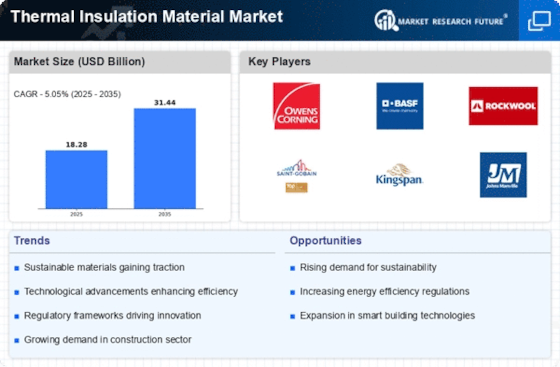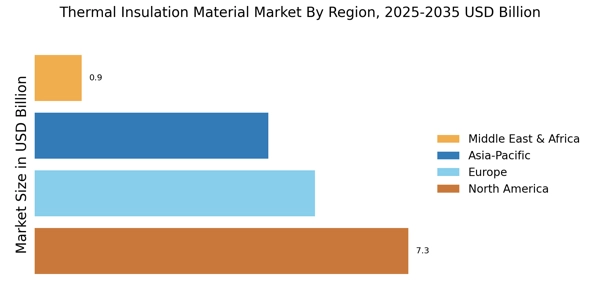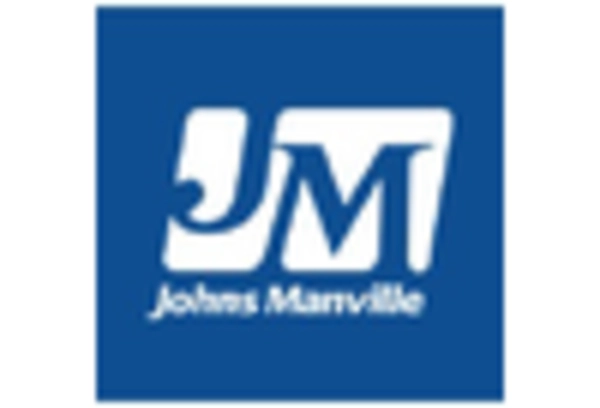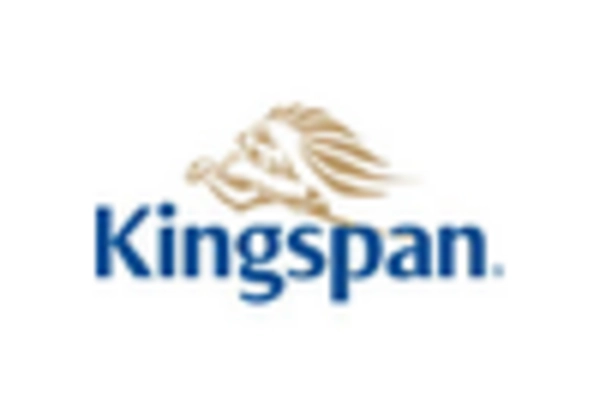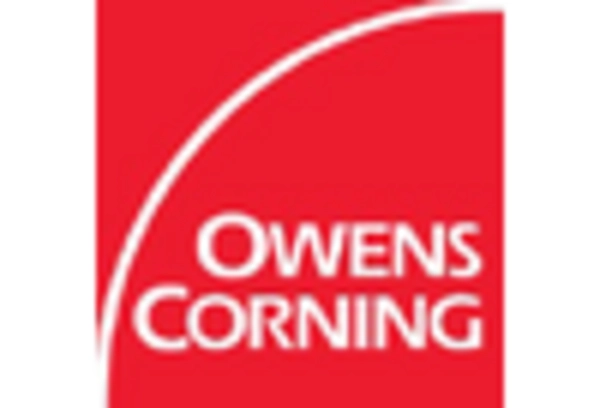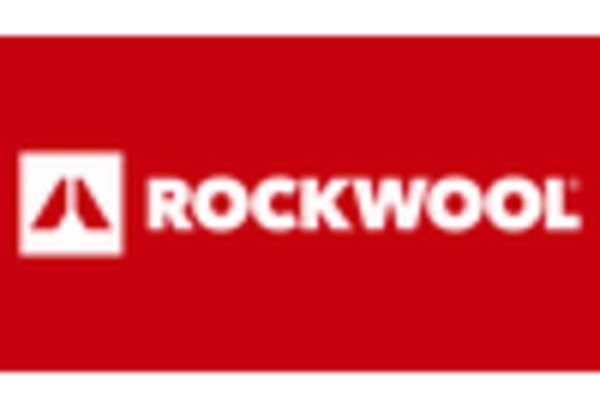Rising Energy Costs
The increasing cost of energy is a pivotal driver for the Thermal Insulation Material Market. As energy prices continue to rise, consumers and businesses are seeking ways to reduce their energy consumption. Effective thermal insulation materials can significantly lower heating and cooling costs, making them an attractive investment. Reports indicate that buildings equipped with high-quality insulation can save up to 30% on energy bills. This trend is likely to propel demand for advanced insulation solutions, as stakeholders recognize the long-term financial benefits associated with energy efficiency. Consequently, the Thermal Insulation Material Market is expected to witness substantial growth as more entities prioritize cost-effective energy solutions.
Environmental Regulations
Stringent environmental regulations are increasingly influencing the Thermal Insulation Material Market. Governments worldwide are implementing policies aimed at reducing carbon emissions and promoting energy efficiency. These regulations often mandate the use of specific insulation materials that meet energy performance standards. For instance, the implementation of energy efficiency codes in various regions has led to a surge in demand for high-performance insulation products. As a result, manufacturers are compelled to innovate and develop materials that not only comply with regulations but also offer superior thermal performance. This regulatory landscape is expected to drive growth in the Thermal Insulation Material Market as stakeholders adapt to evolving compliance requirements.
Technological Innovations
Technological advancements are reshaping the Thermal Insulation Material Market by introducing innovative products that enhance thermal performance. Recent developments in materials science have led to the creation of insulation solutions that are lighter, more efficient, and environmentally friendly. For example, the emergence of aerogel and phase change materials has revolutionized insulation capabilities, allowing for thinner applications without compromising performance. These innovations are likely to attract a broader customer base, as both residential and commercial sectors seek cutting-edge solutions to improve energy efficiency. The ongoing research and development in insulation technologies are expected to further stimulate growth in the Thermal Insulation Material Market.
Growing Construction Sector
The expansion of the construction sector serves as a crucial driver for the Thermal Insulation Material Market. With urbanization and population growth, there is a heightened demand for residential and commercial buildings. The construction industry is projected to grow at a compound annual growth rate of approximately 5% over the next few years. This growth necessitates the use of effective thermal insulation materials to enhance energy efficiency and comply with building codes. As new projects emerge, the Thermal Insulation Material Market is likely to benefit from increased consumption of insulation products, which are essential for meeting modern energy standards and improving overall building performance.
Increased Awareness of Energy Efficiency
There is a growing awareness of energy efficiency among consumers and businesses, which is significantly impacting the Thermal Insulation Material Market. As individuals become more conscious of their environmental footprint, they are increasingly seeking products that contribute to sustainability. This shift in consumer behavior is driving demand for insulation materials that not only provide thermal benefits but also align with eco-friendly practices. Market studies suggest that energy-efficient buildings can enhance property value and attract environmentally conscious buyers. Consequently, the Thermal Insulation Material Market is poised for growth as stakeholders respond to this heightened awareness and prioritize energy-efficient solutions.


